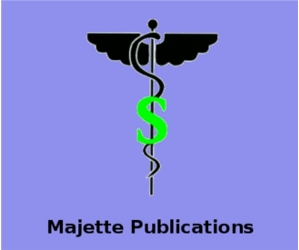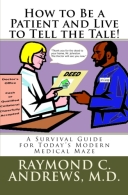
MEDICAL
GRAIL
Back Contact Us
Home
CHAPTER ONE
Robert's shaking fingers grappled
for the receiver of a phone he heard but could not see.
It was dark and cold in that strange room. His clawed
hand groped blindly for the rotary telephone. He
scrabbled around, knocked an empty whiskey glass to the
floor, and then found the jangling instrument. He rolled
over on the lumpy mattress and put the receiver to his
ear. He felt slightly dizzy.
"Pronto!" he slurred an Italian telephone hello. "Cris? Pronto." He was speaking to his dead wife. Again.
"Dr. Bascom? Dr. Robert Bascom?" a female voice stuttered.
"Yes. Sorry," the 35 year-old physician replied. "Yesh, dammit," he mumbled. His wife had died months earlier, yet he still talked to her. When he did so among friends, they gently reminded him that she was in "a better place." It angered him. Bascom did not consider a coffin in a tomb in Italy a better place.
He sat up, ran a shaky hand through his hair, and then squinted at his old army watch. It was between 0400 and 0600 hours. The dimly iridescent hands shimmered too much to be certain, but it made no difference. The phone call had interrupted a pleasant dream and had annoyed him.
"Who is this?" he asked as he blew the dust from his nose.
"Donna Franklyn, sir. I'm a nurse at the hospital and I've a critical patient you need to see."
"Ms. Franklyn," he said as he rubbed an eye with the heel of his hand, "I don't start work till tomorrow morning. I don't even have staff privileges yet."
"Dr. Perkins says you can treat patients," she insisted. "There's no time to argue about this now. You can discuss it with Mr. Cohen in the morning if you like, sir. But I need you here now."
"What've you got?" he yawned.
"An unresponsive 25 year-old Mexican who's cut his arm to the bone," she replied. "His blood pressure is 50/0, pulse 32, and respirations 4. I put in a Foley catheter and he's got no urinary output."
"How much blood have you given him?" Bascom swung his legs over the side of the bed, cupped a hand in front of his nose and exhaled into it. The smell of stale alcohol bounced back at him. If the shock doesn't kill the guy, my breath sure will.
He switched on the nightstand light. He had vowed to stop drinking the day he started work here in Whitney, but he hadn't resisted pocketing the miniature scotch bottles the hostess had offered him on the flight from Italy. He should have disconnected his phone before draining them and going off to sleep. Now he had to see a patient reeking of half-digested scotch. Even if he was not drunk, being even a tiny bit under the influence violated his rigid standards of proper physician behavior. Robert Bascom knew he would chastise himself over this lapse for weeks - or until some other convenient, guilt-producing breach of protocol replaced it.
"No blood, just saline," the nurse replied.
"Don't you treat blood loss by replacing it?"
"Yes, but I need a doctor's order."
"Aren't there any physicians on duty in your ER?" he asked. Bascom's eyebrows furrowed with genuine concern.
"Dr. Perkins is here. But he's busy."
"Order six units of whole blood and three units of Hetastarch. I'm on my way." Robert hung up the phone and stood, holding onto the nightstand until the wooziness passed. He rubbed his fingers over the stubble on his cheek and thought about shaving, but there was no time. He donned the sweaty dress shirt he had worn on the plane, then fumbled with the buttons, all the while cursing those straight Scotch nightcaps.
Bascom smoothed the shirtfront over his flabby abdomen and stepped unsteadily into his jeans. He stood up and sucked in his stomach so he could button them. When he relaxed those muscles and breathed normally again, a doughnut of flab oozed over his belt line. Disgusting. In the six months since his wife's death, he had morphed from a trim marathon runner into a human pear. He had agreed to modernize Whitney's small hospital as a way of returning to the Bascom his colleagues respected and sometimes even feared. Unfortunately he would make his début appearance disguised as a street bum.
He pulled on a wool jacket and finger-combed his unkempt blond hair before exiting the house. It was November in the Arizona desert. In comparison to the freezing temperatures in the Italian mountain town he had left the day before, the morning air here felt spring-like.
Bascom paused on the empty street to get his bearings. The taxicab driver on the way in from the airport had told him the hospital was three blocks down and one over. But in which direction? He tried to freshen his breath with a mint spray, but the can was empty. He licked its nozzle. Maybe a leftover drop of the sickly sweet liquid would mask the stale Scotch. If anyone got too close he would breathe into his sleeve or hold his breath.
When will you realize her death wasn't your fault? Bascom tossed the empty spray can into a bin and hurried along the uneven sidewalk.
"But it is! You'll never live it down, Dr. Pain in the Ass Perfect," the familiar taunting voice in his head jeered. Bascom pulled up the collar of his jacket. He saw a sign and decided to hang a left.
"Basta!" he grumbled as he smacked the side of his head with his fist to silence the dissenting voice. He ran a few steps, then slowed to catch his breath and then ran again all the way to the hospital on Apache Lane. Before Cristina died he could have run the distance without working up a sweat. Now, as he burst through the ER doors, he was gasping for air and holding his chest like an old man with a heart attack.
A homely young woman in a white dress and blue sweater quickly rose from her chair as he approached the nursing station. He was wheezing. She took him for a patient.
"Are you in pain?" she asked. A well-dressed man reading a newspaper in the corner of the nursing station glanced up, frowned, and then resumed his reading.
"No. Out of shape. I'm Dr. Bascom," he rasped. "A Ms. Franklyn called me in to see a patient."
"He's over there," the woman replied. He wheeled and saw two patients on opposite sides of the otherwise empty ward. One snored peacefully while a nurse and a young man in a blood-spattered uniform attended to the other. From where he stood, Bascom could see the patient was an unconscious, pale, cadaverous young Mexican. Walking toward the trio, he read the vital signs flickering on the battered EKG monitor next to the stretcher: heart rate 20, blood pressure 40/30.
"Hi," Bascom said, as he touched the Mexican's cheek with the back of his hand. The man's skin was cold and dry. Death was near. He clicked his tongue softly as he examined the gauze dressing over the man's elbow. It too was dry. And white.
He saw the nurse watching his shaky hand and quickly stuck it in his pocket. The woman was dark-haired, brown-eyed and probably in her early thirties. An American Sophia Loren - only prettier.
The nurse pulled her granny glasses down onto the bridge of her nose, shook her head, and then pushed them back up and peered at the label on the bag of blood.
She knows, Bascom realized. A new shiver of old shame crept over him.
"Glad you got here," she said as she compared the bag's blood type label to the patient's wristband. "I'm Donna and this is Roberto, a paramedic from AZ-Amb," she explained, nodding to the emergency medical technician who was rhythmically compressing a rubber bag attached to a tube in the patient's mouth.
"I'm sorry I woke you. But this man needs your help."
"His vitals are incompatible with life," Bascom replied, pointing to the monitor. "It'll be impossible to save him. Has the other stuff arrived?"
"You mean the Hetastarch?"
"Yes. It treats shock by increasing plasma volume."
"I know what it does, Doctor," she replied with a half grin. Haughty and contentious came to mind. That was irritating. But then he knew an unshaven, flabby, half dressed doctor, smelling of stale alcohol was not conducive to inspiring confidence in staff.
"I was just verifying your order," she said. “You mumbled it over the phone," she added, attaching the blood bag to a pole at the head of the stretcher.
"Refresh the vitals, please," he requested. Then he sighed and thought, Mumbled? She did say, "mumbled." She knew damn well I was slurring my words.
Donna hit a button on the monitor and the cuff hissed around the patient's arm. "Pulse 20, pressure 40/30," she said. "I've never seen vitals so low before."
"He's agonal. On the verge of death,” Bascom replied. As he spoke, a pharmacist arrived with the Hetastarch. Donna took one of the plastic bags and hung it on the pole next to the blood.
"How did this happen, Roberto?" Bascom asked as the nurse plugged the tube from the bag to a needle in the man's arm. He cupped his hand discreetly over his mouth and breathed into it. That drop of breath freshener was not working. Bascom took a step back from the EMT.
"His ex-wife called 911 while he was breaking into her apartment. He probably cut his arm as he pulled it back through the broken glass door," Roberto replied, still squeezing the bag with his muscular hands. The patient's chest rose as air was forced into his lungs. "We found him in a pool of blood under a truck."
"How long ago?"
"Over an hour," the EMT replied. "We didn't know how long he had been there."
"He's past the 'Golden Hour,' the maximum time a body can survive in a state of shock before irreversible tissue death sets in. That dressing is bone-dry. It's not even pink," Bascom said, pointing to the gauze around the Mexican's arm. "The guy's out of blood."
"He wasn't before I changed it," the nurse interrupted. She straightened the tubing to increase the flow of the Hetastarch.
"What were his vitals when he arrived?"
"Pressure 80/50, pulse 140," Roberto replied.
"Why didn't you transfuse him then? You could have saved him," Bascom demanded. "This looks bad."
"Dr. Perkins was busy," Donna explained.
"Too busy to write an order for blood for a man who is dying right here in the ER?" Bascom fumed. "I find this hard to believe." He turned toward Dr. Perkins who stood behind the nursing desk. Perkins sensed his new colleague's anger. He snapped his newspaper tight and hid his face.
"Did you ask Dr. Perkins to order blood for this patient, Ms. Franklyn?" he asked the nurse directly. He dug his right hand deeper into his pocket and drummed the fingers of his left impatiently on the stretcher's railing.
"Three times," she murmured. Her eyes were narrow slits behind her granny glasses. "Each time he said he was too busy and to call you."
"Busy doing what?" he insisted.
"Reading the paper," she replied. "Dr. Perkins won't treat Mexicans or Indians if he can find a way not to, and he always finds a way not to."
Bascom had worked with bungling physicians and even corrupt physicians, but this was the first time had ever worked with a killer physician. If what the nurse had said was true, Perkins was in Mengele's class. No more ethical than the German SS officer physician in the Nazi concentration camps. Mengele was known as the Angel of Death. Maybe Perkins didn't take pleasure in torturing his patients the way Mengele did - but he had flagrantly ignored the fate of a dying patient. Indeed he had stood by, watching from behind the goddamn local newspaper as the man bled to death. "I'll deal with him later," Bascom said.
The nurse tilted her head, like a puppy trying to understand a new command. "Someone should've dealt with him. Long ago," she muttered.
"Excuse me?" Bascom said, as a blotch slowly appeared on the dry bandage. Light pink like dilute cherry soda, far from the dense red of blood.
"I said," the nurse said louder, "the IVs are running fine, Doctor."
"Um. Do you have an arterial repair kit?"
"In the OR."
"Get it."
The nurse left the ER and Bascom undid the bandage and beamed the overhead light into the jagged gash above the man's elbow. Deep in the wound lay a severed artery from which oozed a dilute mixture of blood and Hetastarch. He crumpled a corner of the bandage, gently pressed it over the torn vessel and held it in place. Donna returned shortly with a blue bundle and placed it on the steel stand next to the stretcher.
"Put a finger on this," Bascom ordered before opening the surgical pack. He slipped on a pair of sterile latex gloves as the nurse read the monitor.
"His blood pressure is 40/0, Doctor," she said. "He's in shock."
"You mean, he's still in shock," Bascom corrected. He picked up a clamp, held it over the wound and nodded. Donna removed the gauze. He reached in to clamp the artery, but it was no longer bleeding. The jagged tear in the artery's wall was dry.
"Measure his B/P again," he sighed, tossing the clamp onto the tray. It skidded noisily off the metal and landed silently on the blue towel. The nurse hit a button on the monitor. The blood pressure cuff hissed as it inflated around the man's arm. Bascom took a penlight from the technician's shirt pocket and flashed it into the patient's eyes.
"Zero," she said. "No pressure and no heartbeat." She looked up at Bascom. "Should we start CPR?"
"It's too late," Bascom replied as the monitor beeped. "You can turn that off. His pupils are fixed and dilated. He's dead. But he didn't need to be. I'm pronouncing him dead at 0730," he added, looking at his watch. "Is his family here?"
"No," Donna replied. "He's alone."
"Too bad you couldn't have saved this guy. Don't worry. You did what you could..." Bascom said, "...under the circumstances. Thanks. Good night," he added before returning to the nursing station.
He said hi to the woman behind the desk as he took the Mexican's chart from her. "Would you have the social worker tell his family?"
"Sure," she replied with a smile.
"Thanks. Where's Dr. Perkins?"
"He left a few minutes ago," she replied.
"Would you please tell Mr. Cohen that I'll be in his office at 3 pm."
"I will," she said.
Bascom
documented the events on the dead man's chart and left
the ER. The thought of a bed, even a lumpy, dusty
one, quickened his pace, and within minutes he entered a
tan Santa Fe style house. He glanced up at its
open-beamed ceilings, made his way between the hand-hewn
chairs around the river rock fireplace, and slouched
down the hall to the bedroom.
A queen-sized bed with a carved headboard and matching nightstands shared cramped space with a rugged pine armoire that boasted a full-length mirror. He paused to stare at his disheveled self. Cristina would kill me if she saw me like this, he thought. He also knew that if she were still alive, he would not be where he was, looking so scruffy.
He crouched down, opened a suitcase on the floor, removed her picture and traced her flowing blond hair with his finger. Cristina smiled seductively back at him from the antique silver frame. "I miss you, Cris," he whispered. "I did what I could. But it wasn't enough. Forgive me." He choked out this last, set his dead wife's photograph askew on the nightstand and collapsed on the bed.



